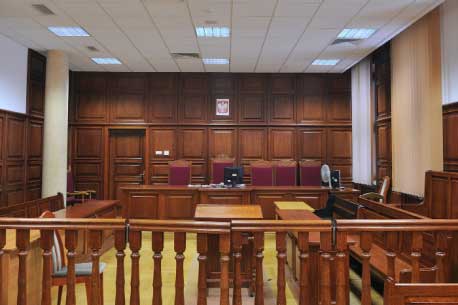A necessary condition for effective actions taken by a party to the criminal procedure is getting access to the material in case files. Obviously, not everyone has access to criminal procedure files - only the people specified in the criminal procedure regulations can gain access to files. As a rule, these are parties to the proceedings and their representatives. However, we should distinguish between the rights of access to files at the stage of judicial proceedings and preparatory proceedings.
Files submitted to the court with the indictment:
In the light of the currently binding legal provisions, the public prosecutor no longer encloses with the indictment sent to court all files from the preparatory proceedings. The indictment is accompanied only with the material connected with responsibility of people specified in the indictment for the acts imputed, especially:
- Decisions and orders pertaining to people mentioned in the indictment, issued during the preparatory proceedings.
- Reports from actions required by law, with attachments to these reports.
- Official and private opinions and documents obtained or submitted to the case file.
Therefore, it can mean that criminal procedure files shall be stored partly in court and partly in the office of the prosecutor conducting the proceedings. This is a major change compared to the previous legal status and it will appear in the course of time how it will be implemented in practice.
Nevertheless, it is worth mentioning that even though the files sent to court may not contain all material from the preparatory proceedings, the public prosecutor can enclose with the indictment also other material requested by a party. Such a motion should be filed according to Article 321 §5 of the Criminal Procedure Code, that is within 3 days from getting acquainted with the case files.
Access to files in the preparatory proceedings:
In the course of the preparatory proceedings, when evidence is still gathered and the public prosecutor is not a party to the proceedings but their host, access to case files is limited. However, there is a possibility to gain access and it is worth striving for, because getting acquainted with the material collected during the preparatory proceedings can help prepare for defence of own rights (as a defendant or as an aggrieved person). At this stage, the files can be made available by the prosecutor to the parties, attorneys, proxies and statutory representatives.
Access to files can cover solely the right to see the files, but also the right to make copies or transcripts, depending on the consent granted in this matter. A consent for access to files of the preparatory proceedings can be granted on condition that there is no need to secure a correct course of the proceedings or to protect an important interest of the state which would justify refusal of access. Hence, in practice, in order to gain access to case files in the preparatory proceedings, a relevant motion should be lodged with the prosecutor conducting the proceedings.
Access to files in the judicial proceedings:
At the judicial stage of the proceedings, the right of access to files is always granted to the parties (prosecutor and defendant), their attorneys and representatives. At this stage it is deemed that all necessary material has already been gathered and secured in the preparatory proceedings, this is why the authorized people are always entitled to get access to the material without further limitations.
In connection with the fact that nowadays the prosecutor does not submit to court the entire files of the preparatory proceedings together with the indictment (which has already been discussed), during the judicial proceedings the parties and their representatives are also entitled to have access to the remaining part of the files. In order to gain access to the case files, a relevant motion should be lodged.
[Legal status as at July 2015]



